Community Transport: 'Lifeline' for isolated rural passengers at risk
- Published
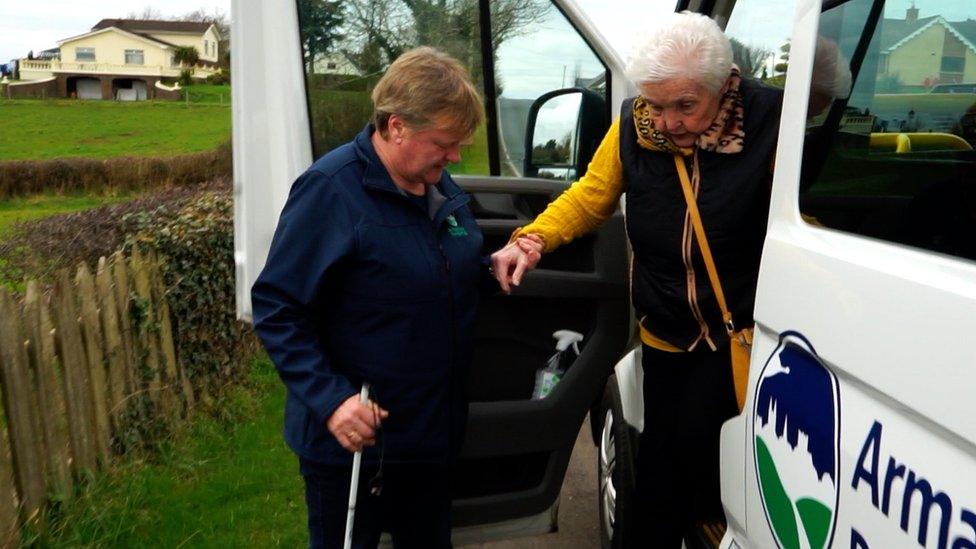
The dial-a-lift service which transports elderly and disabled passengers in rural parts of Northern Ireland is at risk of closure
A service that provides transport to elderly and disabled passengers in rural parts of Northern Ireland is at risk of closure.
The dial-a-lift service makes about 200,000 journeys annually, taking vulnerable passengers to healthcare appointments and food shopping.
It has previously received annual government funding of £2.2m each year.
But funding from the Department for Infrastructure (DfI) is due to run out at the end of April.
A spokesperson for DfI said they recognised the importance of the service but that "extremely difficult decisions" had to be taken while a budget for 2023/24 had not been confirmed.
In the absence of a Northern Ireland Executive there has yet to be an agreement on the next Stormont budget.
Anne Mallon from County Armagh is partially sighted and uses community transport on a weekly basis
'Devastating'
Eleven organisations across Northern Ireland deliver the dial-a-lift service through Rural Community Transport Partnerships.
The Community Transport Association (CTA) is a national charity that supports the organisations.
Its director, Noeleen Lynch, said the situation was "devastating" for everyone who relied on the service.
"If we lose this service it will cause severe and irreversible damage to disabled people, who live in rural areas with no public transport nearby.
"Elderly and disabled people rely on this service for medical appointments and basic food shops, so you're talking about an impact on peoples' lives and livelihoods should funding be reduced or discontinued."
Ms Lynch said that although funding was guaranteed until the end of April, without news of further funding by the end of March community transport organisations would have to make tough decisions.
"In that situation unfortunately, some community transport organisations may be forced to begin winding up," she said.
"This will have a devastating impact on vulnerable people in rural communities."

About 40% of people in Northern Ireland live in rural areas and many rely on community transport to allow them to leave their homes
The Department for Infrastructure said it understood the impact it would have on the workforce and users if funding for this scheme was to stop.
A spokesperson added: "To minimise uncertainty and operational difficulties, a funding commitment has been given to community transport providers for April 2023. Further decisions for the remainder of the year will be subject to the budget outcome."
About 40% of people in Northern Ireland live in rural areas and many rely on community transport to allow them to leave their homes because of a lack of public transport nearby.
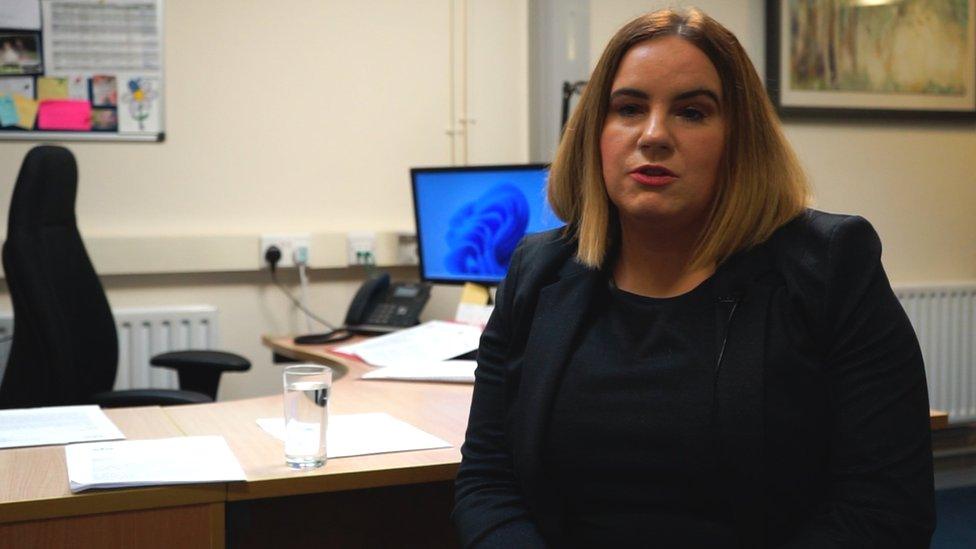
CTA Director Noeleen Lynch said the situation was "devastating" for everyone who relied on the service
'It is my lifeline'
Anne Mallon from County Armagh is partially sighted and uses community transport on a weekly basis.
She said: "I live on my own, I'm over 80 years of age, and I'm almost blind, so I would be completely lost without the service.
"They take me to go see my brother who has bad eyesight as well, they take me to get my hair done, I use it for eye appointments and to go to my visually impaired group."
She added: "If this services goes, I really would be isolated, just sitting in my house depressed.
"Taxis are too expensive, so I can't do without this service, it's my lifeline."
'It stops loneliness'
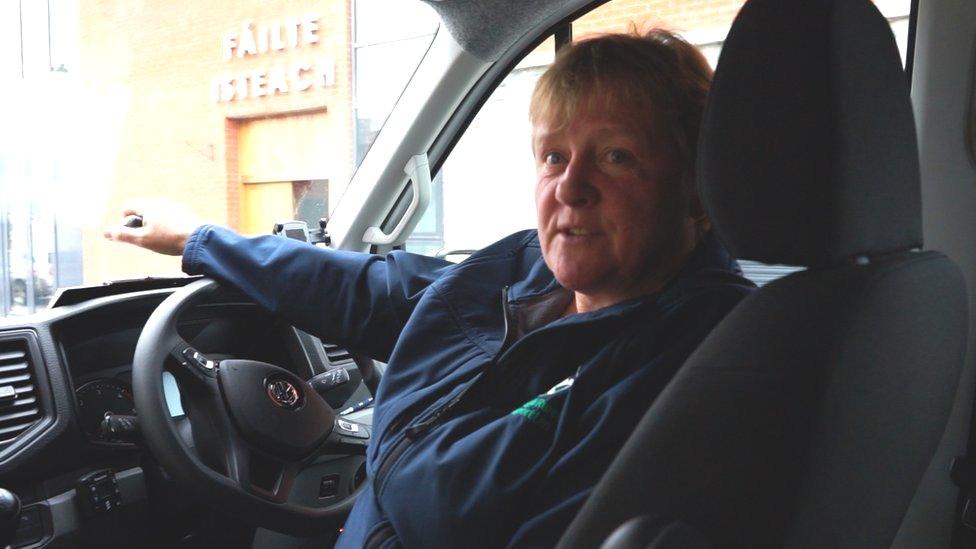
Diane Woods has been a driver with community transport for 20 years
Diane Woods has been a driver with community transport for 20 years.
She said: "If this isn't sorted, I'll be made redundant, it's a simple as that.
"But I really feel for the people who rely on the service, not just for things like GP appointments and groceries, but just to get them out of the house."
Ms Woods said for some people it is their only way of getting social interaction and prevents loneliness.
"Most of the people I lift are very rural and live nowhere near public transport, so it just would be a massive loss to them," she said.
'Budget uncertainty'
In recent months community transport organisations have also been affected by rising fuel costs.
The Community Transport Association is calling for the service to be fully funded and ring-fenced against future cuts.
Stormont's departments have been operating without proper budgets since the start of the financial year last April due to the collapse of the executive.
BBC News NI previously reported that public services provided by Stormont departments face cuts of at least £500m in the new financial year.
It is understood that a number of other voluntary organisations funded by DfI are also at risk of losing funding.
The department said further funding decisions will be "dependant on the departmental budget allocation, which has yet to be confirmed".
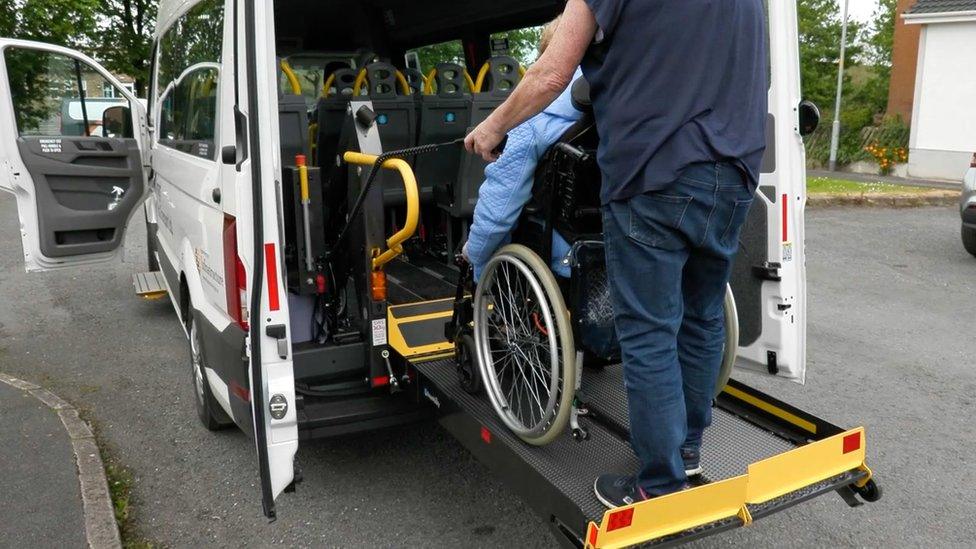
A number of other voluntary organisations are at risk of losing funding back of 'budget uncertainty'
Celine McStravick, chief of executive of the Northern Ireland Council for Voluntary Action (NICVA), said the transport service was the lifeblood of many communities.
"The fact that funding has been ended, and at such short notice, is a devastating blow," she said.
Ms McStravick said the sector is already under immense pressure without further funding cuts.
"In terms of the wider picture, our members have told us they are concerned about the high cost of energy, volunteer expenses and demand for services that outstrips what they can supply," she added.
"The pressure that they are under is immense, with many reporting that they are only just surviving and don't know how long they can continue."
Related topics
- Published28 August 2022
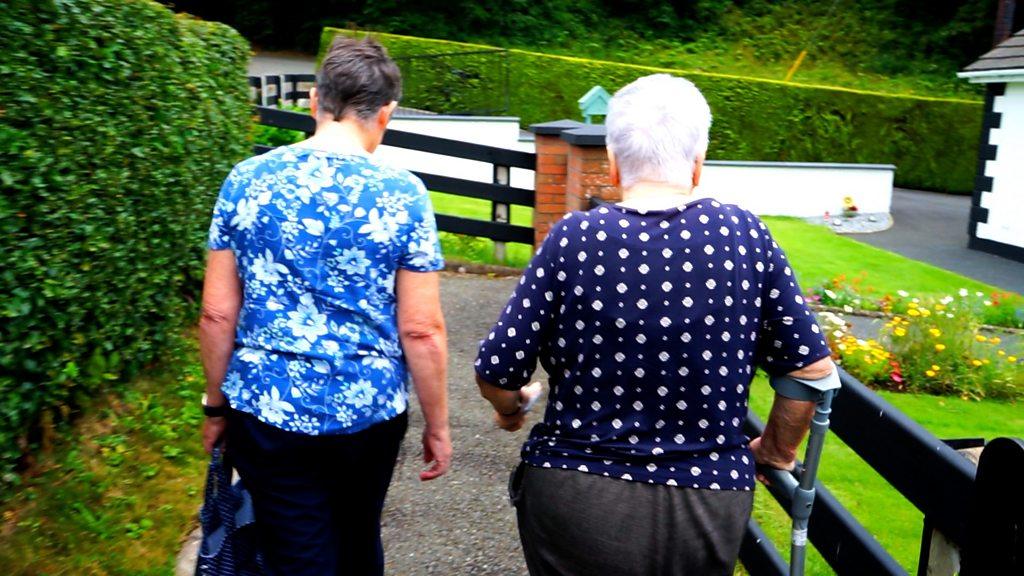
- Published15 April 2020
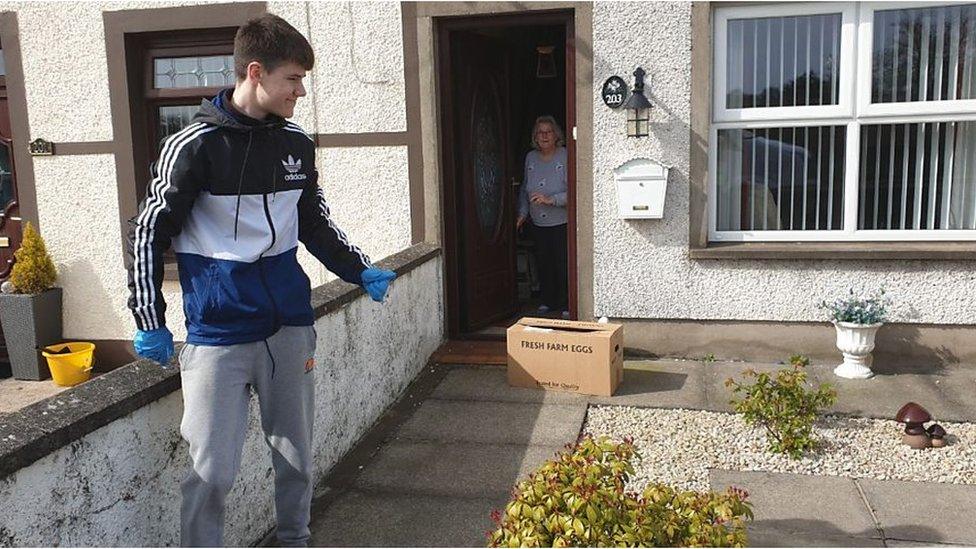
- Published1 February 2023
